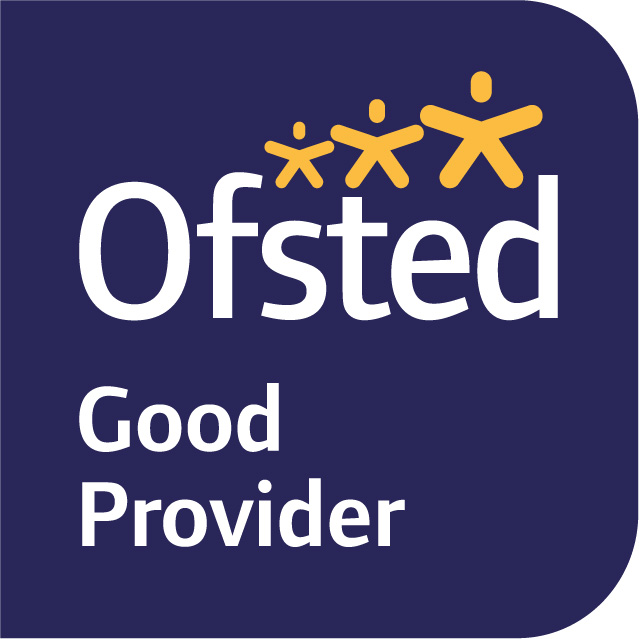This website uses cookies so that we can provide you with the best user experience possible. Cookie information is stored in your browser and performs functions such as recognising you when you return to our website and helping our team to understand which sections of the website you find most interesting and useful.
Adult Short Courses
Maths & English
Check out the available courses at the bottom of this page!
Welcome to the University of Derby – Buxton English and maths family, where you will discover a professional and friendly team of tutors who are experts in their chosen subjects. You will be made to feel at ease with your study, motivated and engaged, whether you choose on campus or online learning.
We offer Functional Skills in both English and maths courses at our, Buxton and Derby (Kedleston road) Campuses. Adult Maths and English GCSEs are currently not offered.
Available courses
19 + English Functional Skills
- Course type: Adults
- Study Type: Part-time
- Study Duration: Level 1 - 12 weeks / Level 2 - 18 weeks
- Level: Entry 1
-
Tell me about the course
This course is for learners enrolled onto a study programme, who have not achieved a minimum grade 4 or grade D in GCSE English Language
Learners who wish to progress onto GCSE English and further study can accelerate through the FS levels.
Here are a couple of examples of learners who have achieved this:
James David Sharratt
His tutor’s comments:
“James is a remarkable young person with an excellent imagination and a real flare for creative writing; after working with the College for a number of years and progressing through Functional Skills to GCSE, I am very proud to say that he has passed!
James is a shining example of what hard-work, tenacity and never giving up can get you; he should be extremely proud of himself! I wish him all the best for the future now that he can focus more of his energies on the apprenticeship he loves and the career-path he’s set on! Excelling through FS to GCSE will make him a more rounded individual. What an amazing journey!”
Morgan Wilkins
His comments:
“I have enjoyed my time studying English at Buxton and Leek College. My lessons have always been detailed and well taught. The teachers were not only teachers, they were friends who have got to know me, and I have got to know back. They also helped me if I was unsure on the tasks or have not done enough work.
I am delighted to pass my English, from FS to now in GCSE. I am extremely proud of my achievements over the last couple of years. I would like to thank Karen (FS) and Joe (GCSE).”
His tutor’s comments:
“Following rapid progress in Functional Skills English, Morgan gained a Level 2 pass in 2019. He started the GCSE English course in the same year, and showed the same effort, enthusiasm and endeavour as he had in the Maths group, attending all extra sessions. His hard work was rewarded with a Grade 6 pass.
His time in FS English gave him the base and components to excel in GCSE English, due to the transferrable skills he possessed. He is a shining example of what can be achieved in English and Maths at college with hard work and an unquenchable desire to improve.”
There are 3 separate components to the English Functional Skills programme:
Reading component
The reading component has different facets which all contribute to the overall importance of reading and spelling correctly. Learners will benefit from an independent understanding of written English Language and different forms of text in a purposeful context – whether this be dissecting and coming to terms with a persuasive letter or advert, an article offering advice to its readers or an informative website article. Learners will read and summarise, succinctly, information/ideas from different sources, identifying the audience of purposes of texts and commenting on how meaning is conveyed.
Writing component
Like the reading component, learners will benefit from a greater understanding of the importance of diction (word choice), structure and SPaG (Spelling, punctuation and grammar). Write a range of texts, including writing letters (such as writing a job application) and emails (such as writing to a colleague about sponsored walk), communicating information, ideas and opinions effectively and persuasively. Expanding on the communication point, learners will discover the value of presenting information/ideas concisely, logically and persuasively, using a range of sentence structures (including complex sentence, and paragraphs) to organise written communication effectively (using commas, apostrophes and inverted commas accurately.)
Speaking, Listening and Communication
Learners will make contributions to discussions in a range of contexts, including those that are unfamiliar, and make effective presentations. The importance of speaking and vocalising personal opinions and points is central to this aspect of the course. Topics could range from a discussion about mental health, cyber security, global warming, surveillance, etc – the breadth is considerable.
Equally so, listening and communication is explored in this component. Learners can choose their own topic to research and are required to create a PowerPoint presentation to discuss their chosen topic. This gives learners the opportunity to express and explore a personal subject. Previously, some adult learners have focused their presentation on their job or family life (such as ‘Covid in the Care homes’ or ‘Assisting and supporting my child with Autism’ or ‘Why Mechanical Engineering is of vital importance’) and have inspired the others in the room. Learners are required to deliver this presentation to a minimum of 3 other learners (plus tutor) and there are opportunities for inquisitive questions and detailed answers at the end of the presentation, thus listening skills need to be demonstrated.
-
What qualification will I get ?
Functional Skills English from Entry 1 – Level 2, dependent on starting level
-
How will I learn?
Learners will learn in the classroom face to face with tutors for 1 x 2 hours
Learners will be expected to complete additional learning outside of the timetabled evening class with resources provided by their tutor
-
What can I go onto next?
Learners can progress onto the next level of Functional Skills English, this will depend on the level on which they started.
Learners can progress from Entry 1 to Level 2
Learners can progress onto further studies in English such as GCSE English Language at UOD – Buxton
Learners can progress onto some Degree programmes at University with a Functional Skills Level 2 English Language qualification
Learners can progress onto further employment opportunities
-
How will I be assessed?
Learners will continuously be assessed through
in-class assessments during the academic year and entered for an exam when the tutor believes the learners is ready.Learners can sit their exam in the same sitting or they can be completed in 2 separate exam sittings. For each of the reading and writing exams they are 1 hour in duration.
Reading exam – 1 hour
Writing exam – 1 hourLearners will receive their results within 4 weeks and if they have achieved in the year they can progress onto the next Functional Skills Level.
If learners have not achieved, the college will rebook these learners in for a resit.
-
Entry requirements
None
19 + Maths Functional Skills
- Course type: Adults
- Study Type: Part-time
- Study Duration: Level 1 - 12 weeks / Level 2 - 18 weeks
- Level: Entry 1
- Campus: Buxton
-
Tell me about the course
This course is for learners enrolled onto a study programme, who have not achieved a minimum grade 4 or grade D in GCSE or O’Level maths
Learners will develop confidence and competence with the content identified in the Functional Skills mathematics specification outlined by Edexcel. They will expand their knowledge of core subject areas including the following: Number notation, function and purpose, Decimals, Fractions, Percentages, Ratio & proportion, Probability, Averages, Data Collection methods, Geometry & Shape, Formulae to calculate area and perimeter of polygons, compound shapes and circles. Problem solving skills using the multi-step problem solving method are then developed as these topics are incorporated into real-life situations when assessed in the exam.
Learners will also develop transferrable skills such as self-directed study, self-awareness of strengths and weaknesses and time management skills which provide a solid base to help them survive and thrive in future learning or work environments.
A BKSB Initial and Diagnostic assessment will take place in preparation for the course, to determine suitability and determine the appropriate level on which to enrol the learner, which begins at Entry Level 1, progressing up to Level 2.
-
What qualification will I get?
Functional Skills maths from Entry 1 – Level 2, dependent on starting level
-
What can I go onto next?
Learners can progress onto the next level of Functional Skills maths this will depend on the level in which they started.
Learners can progress from Entry 1 to Level 2 and in some cases can progress through more than one level depending on ability.
Learners can progress onto further studies in maths such as GCSE maths at BLC
Learners can progress onto some Higher Degree programmes at University with a Functional Skills Level 2 maths qualification
Learners can progress onto further employment opportunities
-
How will I be assessed?
Learners will continuously be assessed through
in-class assessments during the academic year and entered for an exam when the tutor believes the learners is ready.Learners will sit their exam in the same sitting. This is a 2-hour exam, separated into 2 sections:
- Section A – Non-calculator
- Section B – Calculator
Learners will receive their results within 4 weeks and if they have achieved in year can progress onto the next Functional Skills Level.
If learners have not achieved they can be rebooked to sit their exam again.
-
Entry requirements
This course is for learners enrolled onto a study programme, who have not achieved a minimum grade 4 or grade D in GCSE or O’Level maths






